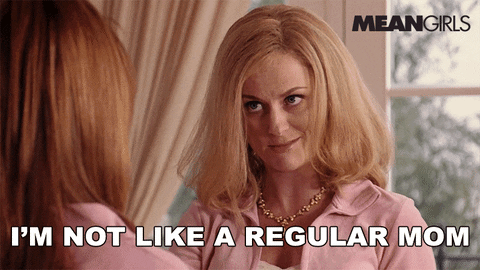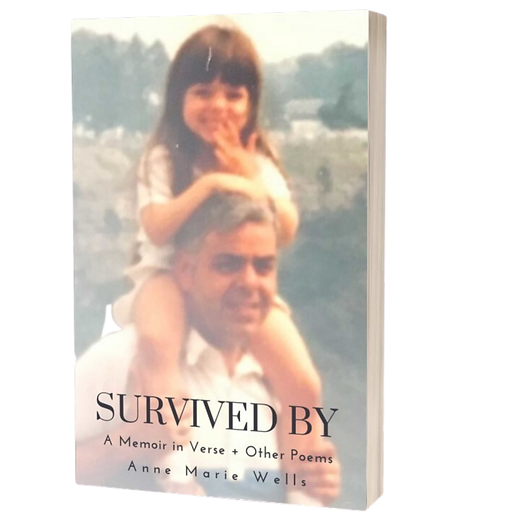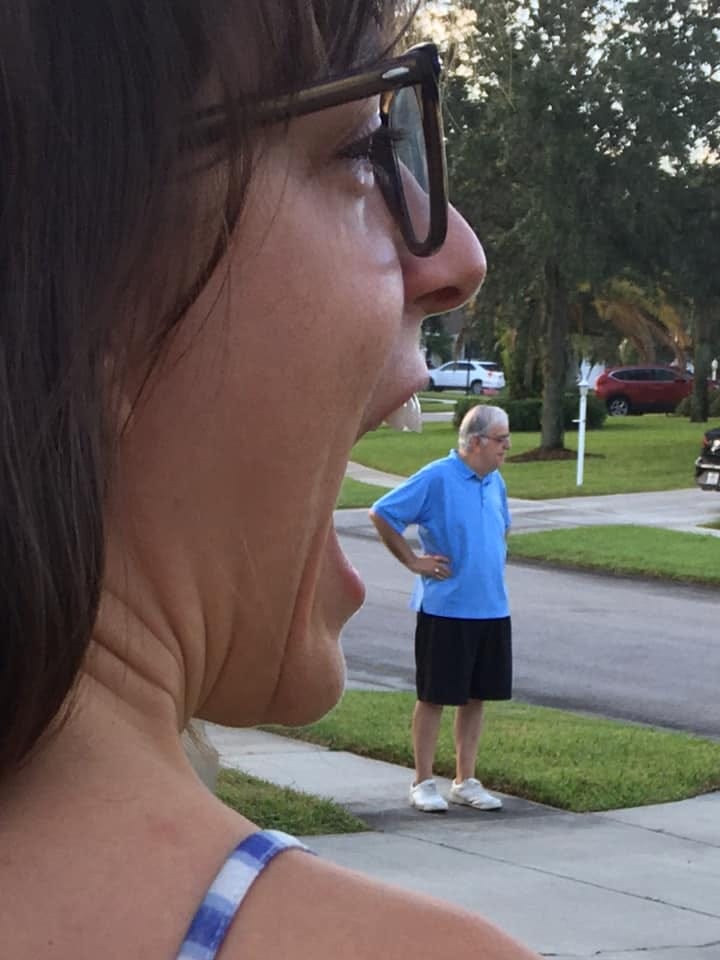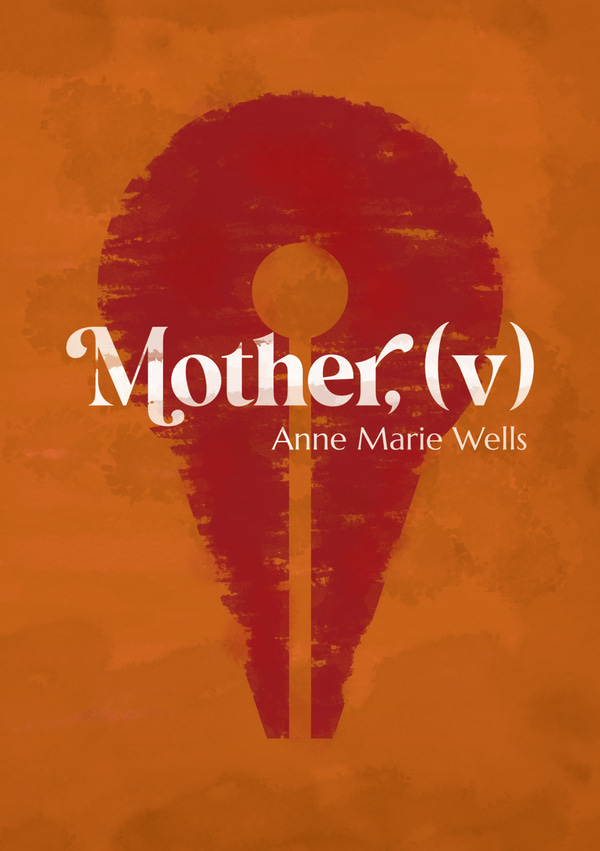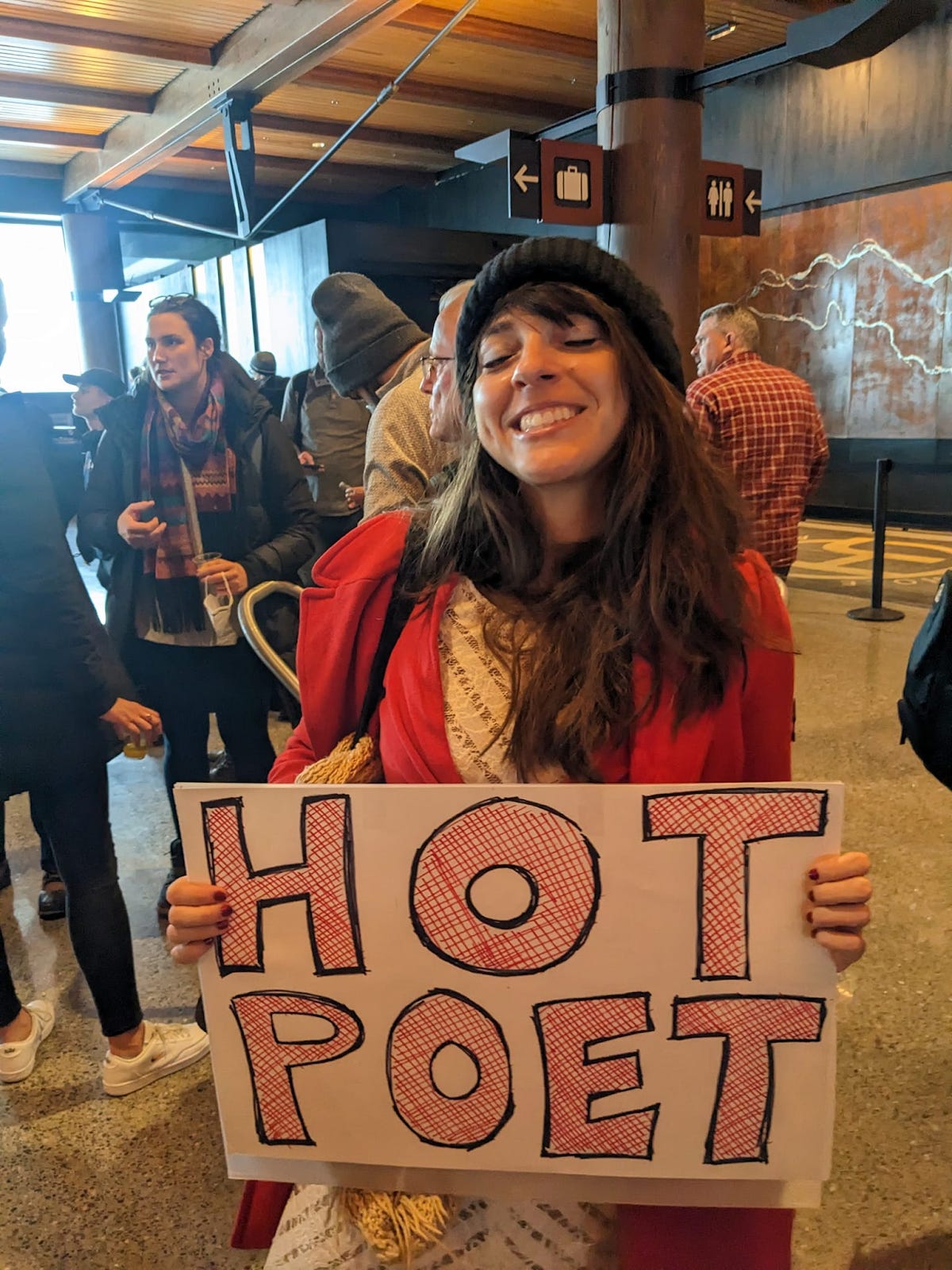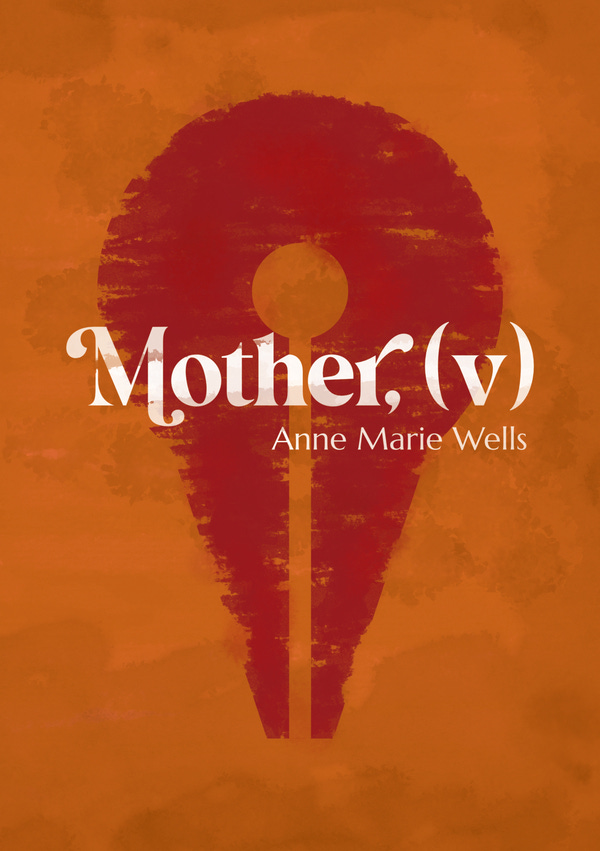Hot Poet, Hot Mother 🔥 🔥
A special Mother’s Day interview with Anne Marie Wells - a poet who is NOT chopped liver
A few months ago, the internet gave us a gift. Idk who followed who first, but somehow, through mysterious algorithm magic (or is it a curse?), PTK connected with Anne Marie Wells on instagram.
Anne Marie Wells is a poet, author, teacher (in that order according to her website). Since leaving her hometown of Utica, New York, in 2004, Anne Marie (she | they) has called several places across the country and globe "home." She is a proud queer person navigating the world with a chronic illness. Her debut collection of poetry, Survived By: A Memoir in Verse + Other Poems, debuted through Curious Corvid Publishing in April of 2023.
Her chapbook, Mother, (v) won the 2023 Cinnamon Press Pamphlet Contest and debuted in March 2024. (ALSO according to her website!)
She welcomed her first baby right after! (According to the fact that we are internet besties now and saw the cutest baby announcement on instagram!)
For this special Mother’s Day Newsletter, PTK had the immense pleasure of interviewing Anne Marie Wells! Part I of the interview took place in late March 2024. Mother, (v) was about to debut, and Anne Marie was 9 (!!!!) months pregnant! We followed up with her this week for a post-publication/post-partum update! Her generosity and insight never fails to amaze us! Please help us wish her a fantastic (FIRST) Mother’s Day & enjoy the interview!
PTK: Hiiii!! Who are you?
AMW: Hiiiii! I am Anne Marie Wells. I’m a poet, playwright, memoirist, and storyteller navigating the world with a chronic illness.
PTK: Describe yourself at age 13.
AMW: At age 13, I was both a straight A student and drinking alcohol to excess with my friends and alone. I was learning that sexual attention from men equated to my value in the world while also craving the sexual attention of my female peers. I desperately wanted to be on a sports team but had neither the natural ability nor the discipline to improve, so never made it past the first round of cuts. I listened to Jewel’s album Pieces of You over and over, transcribing the lyrics into a journal that I would then read back to myself as if the words were letters she had written directly to me. I had a few friends, but spent a lot of time feeling lonely and isolated in my rural town in Upstate New York. I retreated into the lives of TV characters and felt deeply connected to Joey Potter (Dawson’s Creek), Faith Lehane (Buffy the Vampire Slayer), and Phoebe Halliwell (Charmed).
PTK: What does “un-precious poetry” mean to you?
AMW: I’ve heard the term “precious” in poetry refer to poems that utilize stereotypical tropes. “As I stared at the moon, barefoot in the grass, contemplating my place in the universe, I had this great big epiphany.” Or else poems that exert “He didn’t love me, he never loved me, and the loss left me a gaping wound, bleeding into the bedroom carpet” energy. Utilizing the dictionary definition of “precious,” to describe something of great value, “un-precious” could then mean poetry that is emotionally distant from the writer. For me, perhaps “precious” poems are either saccharine (something that would be found in a greeting card or on a tampon wrapper) or are poems that use lofty language that doesn’t reflect the poet’s regular speech. (“For whence the tide roll’d yon.”) So then, “un-precious” poetry would be not that. Hah!
“For me, perhaps ‘precious’ poems are either saccharine (something that would be found in a greeting card or on a tampon wrapper) or are poems that use lofty language that doesn’t reflect the poet’s regular speech.”
PTK: I mentioned before that I lost a dear friend last year and that reading “Survived By” made me feel like a stranger was holding my hand through the past year of grief and saying “yeah, I felt it too”. I am sure I am not the first to tell you so. How does it feel to receive messages like this now?
AMW: It’s so meaningful to me. Those kinds of messages help me along in my own healing journey. And, yes, I’m still healing four years later. Losing my dad to cancer was the worst thing that has ever happened to me, and I felt so lost navigating his death. I wrote Survived By as an homage to my father with the hope that it would help other people the way I needed to be helped.
When I first received my author copies in the mail before my book launch, I was so excited to open the box. I set my phone up to record the moment I broke through the tape and pulled the books out for the first time. But instead of elation, I had a melt down. I started screaming “I would give it all up! I would give it all up!” as if the words were a poltergeist that had possessed my mouth. I wasn’t in control. I wish for it all to have never happened, for me to have my father back. I would give up my book, its success, being a poet at all, if it meant my father never died, if it meant he never suffered. Seeing the pristine books with our faces on the cover, I felt guilty for having turned my heartbreak into something positive, as if I was telling the world that I was happy that my father died so I could have this book deal.
But instead of elation, I had a melt down. I started screaming “I would give it all up! I would give it all up!” as if the words were a poltergeist that had possessed my mouth.
Knowing that I have helped others with my words helps me to shed that guilt. Of course I am not happy my dad died so that I could have a book, and of course no one thinks that of me either. But I do have to remind myself sometimes that illuminating my heartbreak, putting it on display so openly without cryptic or grandiose language has helped other people – poets and non-poets alike – to feel less alone. And, in turn, it makes me feel less alone too.
I ended up re-doing the video when I ordered additional copies for my book tour. That’s the video that can be found on my Instagram and TikTok accounts.
PTK: Your book “Survived By” is a true manual on grief. It captures the devastating absurdity that is staying alive while accepting death. The poignancy of the book for us came in the moments where the absurdity that comes with coping turned near comical (I laughed out loud at “if sex weren't on the table (or the couch or the floor)”. What do you make of the absurdly humorous aspects of loss?
AMW: Those aspects are the aspects that keep me alive through it all. One of my favorite photos is of my dad standing on the sidewalk waiting for my mom to pick him up in the car to either have more tests or some medical procedure. My sister and I were leaving, so it’d be the last time we’d see him for a little while after his diagnosis. I was crying, waving goodbye to him. Then my sister said, “Turn your head this way,” while holding her phone up. Then she said, “Now open your mouth.” She took the picture, and from the vantage point where I stood, it looked like I was about to eat my dad in one bite. There are tears still streaming from my eyes, but we took a moment to be silly/absurd anyway. It just… kept us alive. Even just a little bit.
PTK: As I write this interview you are days away from two major life events: your book “Mother, (v)” is about to be released and you’re also literally 9 (!) days away from your due date! Congratulations on your human and book babies! Which one are you most nervous to see in the world?
AMW: Thank you. Yes, I am thrilled Mother, (v) has now made its debut into the world. I wrote that collection while living in the abyss of wanting to be a parent and it not happening. I’m more nervous about this collection entering the world because it is not a memoir-in-verse like Survived By. Yes, it explores and describes my own experience, but poems I wrote for this collection were also inspired by my friends’ journeys with infertility and pregnancy loss. These poems are not all autobiographical, and I don’t want them to be confused with memoir.
I also feel nervous because I feel like I was once in a club that I am no longer a part of. (Or, I hope to no longer be a part of.) I did get pregnant. I am nine days away from welcoming my child into the world. My partner and I are ecstatic to become parents. I feel like a part of me is betraying all of the people with whom I bonded over this shared void in our lives. I cried with them, I ached with them, I screamed with them, and now I’m posting pictures of my 9-month pregnant belly on Instagram. My logical brain knows that I am allowed to be joyful and to celebrate my own experience, but my emotional brain knows the pain of being left behind. My emotional brain knows the sting of seeing yet another person announce their pregnancy. My emotional brain knows what it feels like to be happy for someone else’s good news while also in agony that good news has not yet (or will never) grace their own doorstep. And even though I want to be joyful and to celebrate my pregnancy (because I am so so so happy), I also hate feeling like I am causing further emotional harm to people I deeply care about.
“Yes, it explores and describes my own experience, but poems I wrote for this collection were also inspired by my friends’ journeys with infertility and pregnancy loss.”
PTK: Like in “Survived By”, “Mother, (v)” explores grief, loss, pain and hope. While “Survived By” had an epilogue of sorts in which you revisited the text a year later, “Mother, (v)” doesn’t have such a clear ending. What contributed to that decision?
AMW: Yes, I think that’s because I am still living the epilogue of Mother, (v). Right now, it lives as a chapbook collection, but I have always had it in mind that it would someday be a full-length collection tentatively titled Mother, (v) / Mother, (n). (Pronounced “mother comma verb, mother comma noun”). The reason I chose Mother, (v) for the title is because even though I have never been the dictionary definition of a mother, I have always felt like a mother. I nannied infants and children for many years and each time one of them called me “mom” by accident, I’d have a physical pain in my chest, a tightening in my throat. Even though I wasn’t a mother, I still knew how to mother. And in that way, “mother” has always been more of an action than a person for me. But now I am entering into this world where I am mom. I am going to be this noun that never defined me before, and I am excited to see how that inspires my poetry. So stay tuned. The epilogue is forthcoming, but maybe not for many years.
PTK: What does your typical writing day look like?
AMW: I actually don’t write on my “typical” writing day, haha! My typical writing day is full of revision – either of my own work or others’ work. I am a freelance editor, so that makes up the majority of my income right now. And I love it! I love supporting other people in their writing goals. I tried working from a desk, but it never worked for me. I just work from bed :-) Sometimes I’ll change out of my pajamas and put other clean pajamas on instead.
So, on a typical day, I’ll work on whatever commission work I have on my to-do list, then I’ll look for free (or low cost) workshop opportunities and submission opportunities. I might apply to a couple or put reminders in my calendar to apply to them later.
I am always working through any number of poetry collections or books on craft at any given time. I might leaf through one while eating breakfast or listen to one on audiobook while cooking or doing other chores. I just finished Ada Limon’s The Carrying and am now working through Ocean Vuong’s Time Is a Mother and Amanda Gorman’s Call Us What We Carry as well as Felicia Rose Chavez’s The Anti-Racist Writing Workshop and Robin Behn and Chase Twichell’s The Practice of Poetry. Reading is part of my writing process. It’s research and development, so to speak.
The reason I’m not usually writing on a typical writing day is because I’m not usually generative on my own. I am always more prolific when in a workshop, class, or group in which there are writing prompts. (Even if I don’t end up writing to the prompt at all!) I wrote Survived By while participating in The Community Literature Initiative. I wrote Mother, (v) while participating in The Poetry Lab’s feedback circle as well as Shelly Holder’s 30 for 30 Writing Group (among other places). So, when I’m writing/generating new work of some kind, it’s usually on a special day rather than a typical day.
“The reason I’m not usually writing on a typical writing day is because I’m not usually generative on my own. I am always more prolific when in a workshop, class, or group in which there are writing prompts.”
PTK: The Brazilian half of PTK was surprised to find some Portuguese sprinkled in your pieces. Do you speak Portuguese? What drew you to the language?
AMW: I used to speak Portuguese! In a former iteration of myself, I was aspiring to be an ecologist and earned my master’s degree in ecology through the European Masters in Applied Ecology program. I spent the majority of my time in Coimbra, Portugal, and while I was there I worked in a preschool and had a Portuguese girlfriend who didn’t speak English. So, I had to learn Portuguese :-) I was pretty fluent, and because I speak French as my second language, I spoke Portuguese with a confusing part-French part-American accent that made everyone question where I was from. I still love the language though I have forgotten a lot of it since I left in 2013.
PTK: Do you consider yourself a hot poet?
AMW: 100%. I’m a big believer that we have to be our own biggest fans. I have to constantly be betting on myself in order to submit my work to so many places. It’s really the only reason I have so many “accolades.” It’s not because I’m particularly special, it’s because I submit my work in the face of hundreds of rejections. It’s a numbers game. I have to believe in myself and what I’m doing otherwise I would never have made it this far, and I have to keep believing in myself in order to keep going. So, 100%. Hot Poet.
“I have to constantly be betting on myself in order to submit my work to so many places. It’s really the only reason I have so many “accolades.” It’s not because I’m particularly special, it’s because I submit my work in the face of hundreds of rejections.”
Plus, fun story: When my partner Matt and I were first dating, we were long distance – very long distance. He lived in Wyoming (where I used to live), and I was on the other side of the country in Virginia. When I flew to Wyoming for the first time to visit him, he had a sign for me at the airport that said “Hot Poet” on it.
PTK: You seem not to buy into writing as an exercise in solitude. How do you think new models for community based writing can be created? Both online and irl?
AMW: That is a great question.
I think they can be/are/will be created informally by passionate folks who build the communities that they need themselves. Co-ops. Collectives. Ad hoc, slapdash, meetups. Poetry guerrilla gangs. In addition to having been a part of Jackson Hole Writers, the Community Literature Initiative, and The Poetry Lab, I have a group of like-minded folks that I meet weekly with online called the PFFs -- Poetry Friends Forever. We're not a nonprofit or business. We don't have titles. We just are friends based all over the country who share poetry and skill sharing with one another really informally. The camaraderie is exactly what I need. Creativity begets creativity. Just interacting with these folks regularly keeps my brain in the creative mindset. I see posts about these kinds of impromptu groups often in the creative writing Facebook groups I follow.
The most challenging part is sustainability either due to burn out of the one person who organizes it all or lack of interest or lack of monetary funds to host events or rent meetup venues, or other reasons. But I think that's okay. Ephemeral experiences can be just as meaningful. I was once a part of a playwriting group, and we called ourselves First Folio. We put on one collaborative play and then never did anything again. But who cares that it didn't last? We created art that we showcased in the community that wouldn't have been created otherwise. And that's great!
“I have a group of like-minded folks that I meet weekly with online called the PFFs -- Poetry Friends Forever. We're not a nonprofit or business. We don't have titles. We just are friends based all over the country who share poetry and skill sharing with one another really informally.”
I encourage people to not let the Western capitalist mindset of "success" or longevity deter them from trying. So, you have a writing group and they meet four times and then never meet up again? Awesome! That's four opportunities for connection, inspiration, and creation that you wouldn't have had otherwise. Maybe you felt really gungho about meeting every week, but then it fizzles out into once a month, or once a season, or every once in a while without a designated day or time. So what? That's still great! That's still putting forth something positive and constructive into the world. And don't we need much, much more beauty and connection and art right now in our world? I think so.
PTK: Marry, Fuck, Kill - phone calls, voice mails, text messages
AMW: I know “fuck” means “to fuck” in this scenario, but I’m going to say fuck voicemails, like to hell with them. I hate voicemails so much.
Kill phone calls. I know the efficiency of them is valuable, but the anxiety I endure from receiving a phone call from a number I don’t recognize is not worth it. Kill phone calls.
Marry text messages. Read them at your leisure. Respond when you can. If you really need to, you can send a voice message over text. Plus cute emojis, stickers, and gifs. There’s so much to say “I do” over.
☎️ ☎️ FOLLOW UP ☎️ ☎️
PTK: Happy Mother's Day! How do you feel now as a Mother (v) and Mother (n)?
AMW: I am definitely feeling the Mother (v) vibes. My life is full of mother duties (that I also share with my partner). I don't have much emotional, mental, or physical energy to devote to anything other than caregiving. As for feeling like a Mother (n)... I don't feel any different. It's still hard to believe this child belongs to me and his real parents aren't about to stop by to pick him back up. I think it will feel more "real" when he is able to call me "Mama."
PTK: How are you feeling postpartum?
AMW: I know this is very lucky/privileged to say, but I am feeling great. I am grateful to no longer be pregnant and lumbering with all of the extra weight and swelling and heartburn and pelvic pain and the plethora of other unpleasant pregnancy symptoms. I am working on my strength and mobility so that I can return to the activities I loved pre-pregnancy like hiking and hot yoga. It is a process and in the meantime, I get to share my life with this beautiful, new, little creature who loves to snuggle and who brings me so much joy and fulfillment.
PTK: Is there anything about motherhood that has completely surprised you?
AMW: When I was pregnant, particularly at the end of my pregnancy when my belly was very noticeable, strangers would bend over backwards to be nice to me. Cars would stop well in advance of the crosswalk. People would wave and say hi to me. People would tell me how beautiful I was everywhere I went. Then the other day, I was crossing the street to get to my car, and a car turning left was mere feet away from me as I crossed. They did not give a fuck about me as a pedestrian in the crosswalk. I walked into a consignment store where all the workers had gushed over how gorgeous I was at 9 months pregnant, and in my post-partum body, they did not give a fuck about me. I even mentioned how the last time I was there I was massively pregnant, to try and jog their memories of me... nothing. They could not possibly care any less. The silver lining of pregnancy was definitely the special treatment. Now that I am a mother, I'm chopped liver.
Happy Mother’s Day to all hot poets who Mother verb, mother noun, & MOTHER hard. we luv u 💖 💖 💖 💖 💖
xoxo
your children at heart,
Kelly and Larissa



